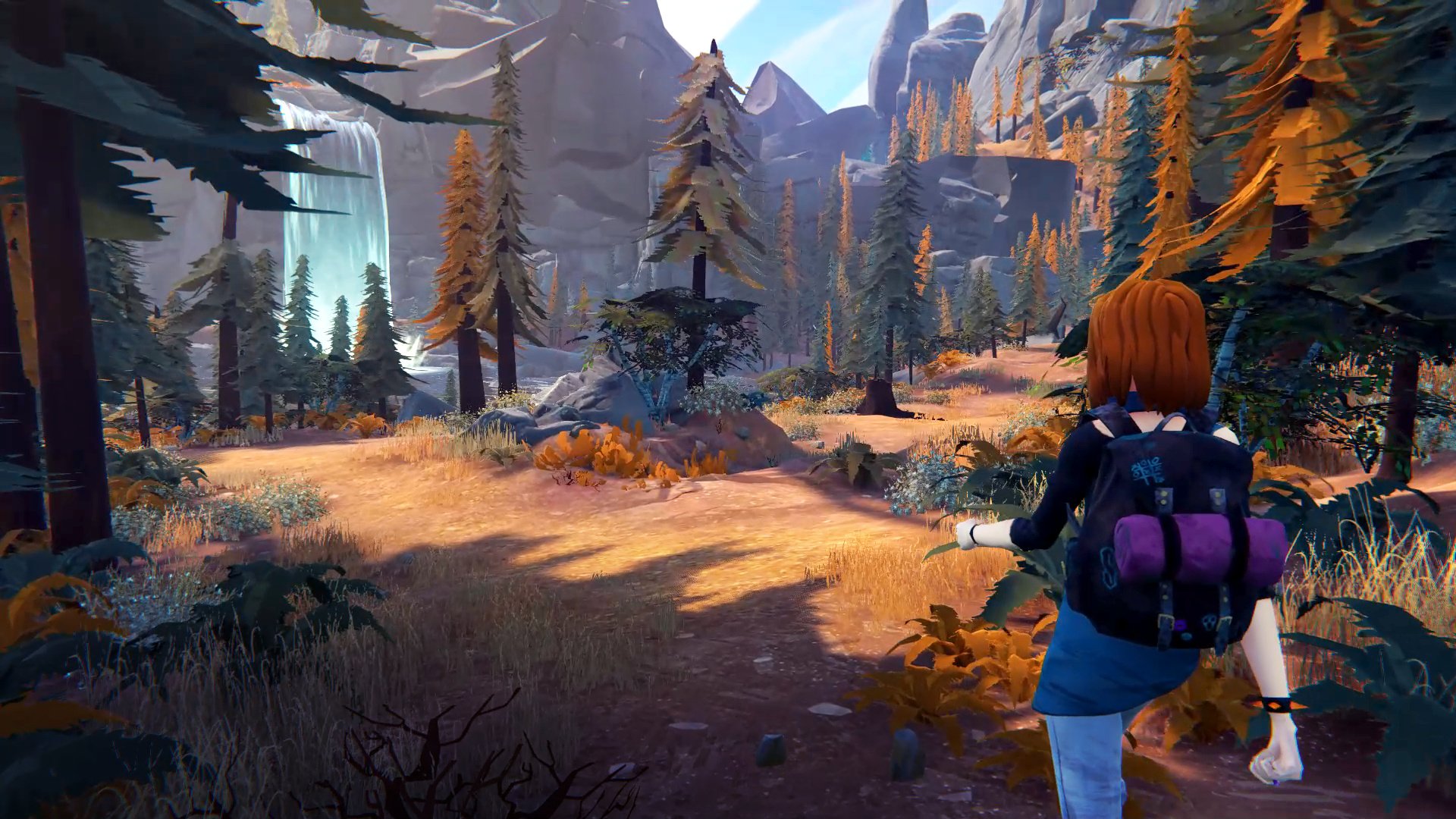

For this week's edition of "Game On," The Fly spoke with Yoan Fanise, CEO of French game developer Digixart, whose upcoming narrative-focused game "Road 96" was featured last month as part of Nintendo's (NTDOY) Indie World presentation. "Road 96" was the first game shown during the presentation, which looks to highlight independent games coming to Nintendo's popular Switch console. The CEO's responses in this interview have been edited for clarity.
'ROAD 96': Fanise said that the reaction to the announcement of "Road 96" has been "huge" so far, with far more views for the trailer and the Nintendo Indie World showcase than he anticipated. "We didn’t expect that, because usually the Nintendo Indie World videos have something like 400,000 views [on YouTube], but this time, I don’t really know why, there have been almost 10M views! I don’t know, it’s very interesting," he told The Fly. "I don’t know if it’s a general trend, maybe the video just got the right algorithm or whatever, but maybe there’s a trend that people want to know more about different kinds of games. People started to play games more because of the COVID-19 pandemic, and I think that maybe they started playing the popular AAA games, but after a while they started to want different experiences. Kind of like how sometimes when you watch all the famous things on Netflix, and after that you look for something more surprising or different. Maybe the indie scene for video games is starting to have this kind of attention.” Fanise added that sometimes the very popular AAA titles from bigger publishers "all feel kind of the same" at a certain point, and that perhaps consumers are becoming more interested in smaller, more creative titles.
NINTENDO DIRECT: When asked how he felt about his studio's game being so prominently featured by Nintendo, the Digixart CEO said that Nintendo has been "really nice" to the developer, and gave his team some flexibility in how they were able to explain the upcoming title. "They put the game first in the video, and even though we spoke in French in the video, I asked some of our other team members to handle the explanation of the game," he said. "Normally I would do this, but I wanted to highlight other people on our team. And Nintendo was okay with the video being in French, and they subtitled it, which was nice. But I didn’t expect this to be the first game featured in the video. It was very nice for them to do. And I think it’s a good move. In the past, Nintendo did a pretty good job with indies, but not [as much] as they could have, definitely less than PlayStation (SONY) and Xbox (MSFT) [have always done]. But now [Nintendo is] really starting to catch up. And it’s good, because they curate the content. They know there are a lot of games on Switch right now, which has something like 20-30 new games a week. So they know they have to curate and choose which games to showcase.”
NARRATIVE GAMES: "Road 96" takes a procedural generation approach to telling a story, meaning that every choice the player makes in the game can lead to a different plot development, allowing for myriad narrative outcomes. When asked if there were particular challenges in building a game this way and if it's especially difficult to balance procedural gameplay with tight storytelling, Fanise said that the question the whole team has asked themselves constantly is, "Can we make a narrative game where nobody will have the same flow?" "The big pillar of this game was defining a scheme, and we prototyped, and prototyped, and prototyped until we got something solid, something that can create a compelling story, not something that feels [bland]," he said. "So it was very hard! It took us two years to get that system working. It’s a lot of prototyping and iteration. Finally, we found something that’s very complex. It’s hard to explain!”
“I’m pretty sure a lot of people will try to know how it works when it comes out, and they will replay it [multiple times] and maybe compare different videos of people playing the story," Fanise added. "It will be a lot of fun for us to see! So I think it’s a lot of combinations of different factors. The mix of the roguelike style of game [where every run is different] makes for so many different sequences, so many dialogues.”
MORE PLATFORMS: So far, "Road 96" has only been announced for Switch and PC via Steam. Fanise said he would like to see the game available on as many platforms as possible, as he believes its "unique style" can be successful. "With a small team, we are 15 in the studio right now, it just wasn’t possible to have a simultaneous launch on every platform, so we decided to just go with Steam and Switch," he added, noting the risk of launching on too many platforms at once could result in unique problems.
“We don’t want to have this effect of disappointment," he said. "If, for example, we go on PlayStation, we would make the game for PS4 and PS5, but with a very big difference between the two versions. It takes time [to do that]. So I prefer not to sacrifice those different visions, and just let the game be on PC and Switch first, which will give us time to do a nice job on the other ones.”
STREAMING: As far as streaming services like Google (GOOGL) Stadia or Amazon (AMZN) Luna go, the Digixart CEO said he is already "working a lot" on Stadia and looking into the unique elements of the service, and figuring out what new features the studio could use for games. “When it comes to streaming, maybe not in the mid-term, but 4-5 years from now, of course our games will be there," Fanise said. "It’s just a matter of time. We all use Netflix now, when just some years ago we all had DVDs. I think cloud [gaming] will be there, it’s just a matter of connection quality, connection speed. It’s going to be fun to see who is going to win that battle, with Stadia and Amazon Luna. But they don’t have the appeal or following that Sony, Microsoft, and Nintendo have. I don’t know how they can succeed, you know? For me, it’s almost a marketing issue, because the tech is very good. Stadia’s tech is awesome! But how you market that and [distribute] games, [that will be the difference].”
GAME PASS: In terms of subscription services, such as Xbox Game Pass or Apple (AAPL) Arcade, Fanise said he's "definitely" exploring it, though he wants to know more about the revenue model for a service like Game Pass. “I definitely want to do that," he said. "I’m really keen to know what the revenue model for it is. Because once a game is on that platform, where it’s free for subscribers, what’s the rule? What percentage do I get? [Games] aren’t the worst about this, that’s probably music.”
“We have to be really careful about what the model is before we go ahead with it, because otherwise it could kill your business," Fanise noted.
COVID-19: When asked how the COVID-19 pandemic affected work at Digixart, Fanise said the studio were "lucky" in a sense, since they had already been prepared for some amount of remote work based on previous projects they had done with companies in other countries. "So from day one it was really easy and quick for us," Fanise said. "Day two, everyone was already at home, back to work. If people had a [lower-end] PC at home, they just took a better one from the studio and brought that home. Besides that, it was very easy for us. And I didn’t notice a drop in productivity. People were very efficient, even at home.”
“The problem we experienced was that after a few months [in quarantine], people started to lose motivation, specifically those who lived alone," the CEO continued. "So [when COVID-19 rates started dropping], we told staff that anyone who wants to go back into the office could do so. The big surprise was that everyone wanted to go back! So I was happy, because that means people liked working here, but we still need to find a balance. So what we’re doing now is having an on-demand structure, where some people can go in, but not everyone can be at the studio.”
“The pandemic has been good for increasing the number of people who play games," he added. "It sounds strange to say that, but video games are doing very well with the pandemic, even older people who didn’t have time to play games are getting back into it. I think the pandemic helped people play more, even people who didn’t play games for years. So there’s a new kind of momentum for video games, and it’s good for indies because I think the spectrum of people who play is wider than before. It’s not just young guys and teenagers.”
"Game On" is The Fly's weekly recap of the stories powering up or beating down video game stocks.
